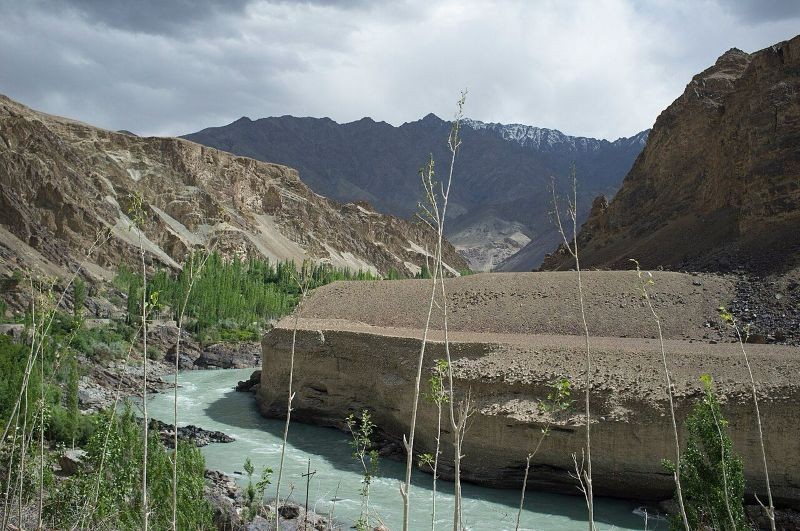
Pakistan faces water crisis after India suspends Indus Waters Treaty: Report
New Delhi/IBNS: Following India's decision to suspend the Indus Waters Treaty after the deadly Pahalgam terror attack, a Pakistani government report has shown a 13.3 percent year-on-year shortfall in water drawn from the river and supplied to already water-starved farms in the Punjab province.
The report by Pakistan's Indus River System Authority said 124,500 cusecs were released from the Indus basin to dams on June 5, compared to the nearly 144,000 cusecs this time last year, media reports said.
The shortfall will affect the sowing of Kharif, or monsoonal, crops, according to experts.
Monsoon rains could improve this supply. However, till then, crops in Pak's Punjab province are at stake.
"In Pakistan, there is less water in rivers and reservoirs connected to the Indus River System, because of which farmers there are in a crisis. The sowing of Kharif crops is underway in Pak..." AK Bajaj, the ex-Chairman of the Central Water Commission, told NDTV.
Bajaj said the particular problem facing Pakistan is that the monsoon only reaches Punjab province by the end of June or the first week of July. Till then, he said, the crisis could get bigger.
According to media reports, there is a 21 percent water shortage in Pakistan for the early Kharif season, which usually extends to June second week.
The Indus basin is fed mainly by the Ravi, the Jhelum, and the Indus itself, all three of which were allotted to Pakistan under the Indus Waters Treaty but flow through India before crossing over.
As per the agreement, India has rights over the eastern rivers including the Sutlej, Beas, and Chenab.
It also gives India the right to use some waters from the western rivers, those allotted to Pakistan, as long as the usage does not significantly impact the water flow to the neighbouring country.
India had suspended the Indus Waters Treaty after the deadly terrorist attack on civilians, mostly Hindu tourists, in Kashmir's Pahalgam on April 22. Invoking its national security prerogative, India said the treaty would be suspended until Islamabad stops backing terrorism.
Pakistan, which depends heavily on the waters of the Indus River both for agriculture and drinking purposes, had earlier written to the Jal Shakti ministry asking that India reconsider the matter.
Prime Minister Narendra Modi, however, has made it clear his government will not reverse this decision, so long as Pakistan continues to support cross-border terrorism.
Support Our Journalism
We cannot do without you.. your contribution supports unbiased journalism
IBNS is not driven by any ism- not wokeism, not racism, not skewed secularism, not hyper right-wing or left liberal ideals, nor by any hardline religious beliefs or hyper nationalism. We want to serve you good old objective news, as they are. We do not judge or preach. We let people decide for themselves. We only try to present factual and well-sourced news.







